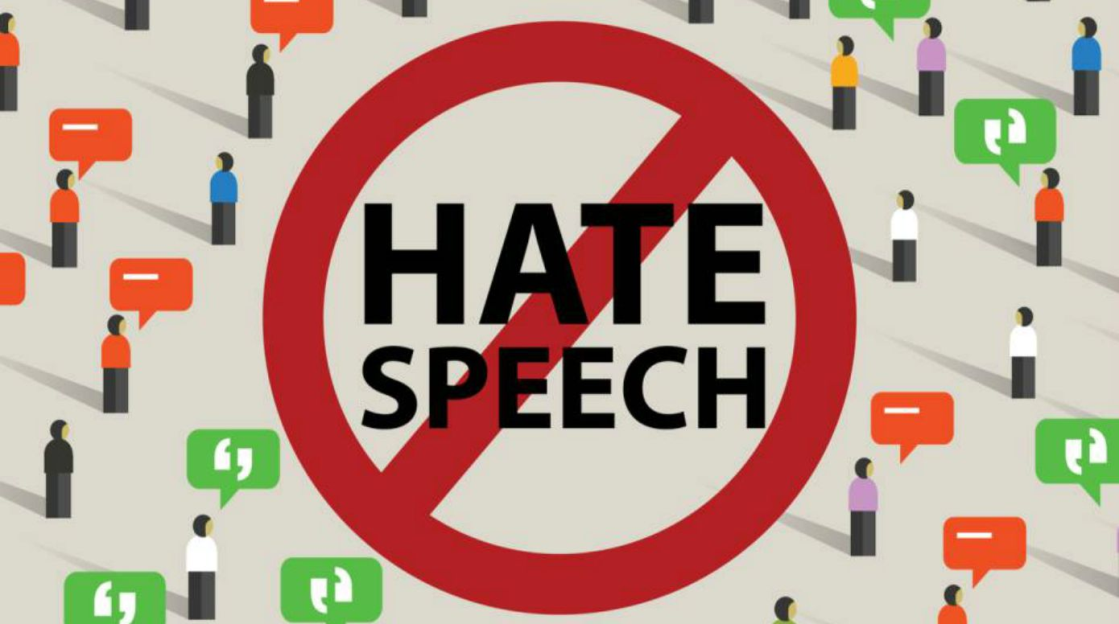Description

Copyright infringement not intended
Context - Karnataka state police have raised concern over the ‘hate’ campaigns.
Details
- The Karnataka state police have raised serious concern about the ongoing campaign targeting a particular community in Karnataka.
- Individuals and groups who have some social media base and are known to make provocative comments have now been leading physical attacks on minorities.
Hate Speech
- Hate speech can be defined as “Any kind of communication; in speech, writing or behaviour that attacks or uses derogatory or discriminatory language regarding a person or a group based on their religion, ethnicity, nationality, race, colour, descent, gender or other identity factors.”
- It is an act of using threatening words or Signs within the hearing or sight of a person to create fear.
- It has become one of the biggest challenges to the rule of law and our democratic structure.
- Hate speech is a serious global challenge; Recently Facebook, in its Transparency Report, disclosed that it ended up taking down 3 million hateful posts from its platform while YouTube removed 25,000 posts in one month alone.
Concern
- The criminal law or the Constitution does not define hate speech.
- Hate Speech is the root of many forms of violence that are being committed.
- One of the most visible effects of hate speech is growing electoral mobilisation along communal lines.
- It not only negatively affects the human rights values but also affects the socio-economic development of the nation and also undermines the constitutional values.
- Hate speech has reached a systemic presence in the media and the internet, from electoral campaigns to everyday life.
- Abusive speech directed against minority communities, disinformation campaigns on TV channels and Social Media, trolling and fake news are becoming the new normal.
- In 2019, the Supreme Court criticised the Election Commission, dubbing it “toothless” for not taking action against candidates engaging in hate speech during the election campaigns.
Provisions under Present laws to deal with Hate Speech
- There are many laws signified to curb hate speech.
- Sections 153A, 295A and 298 of the Indian Penal Code, criminalise the promotion of hostility between different groups of people on grounds of religion and language.
- Section 125 of the Representation of People Act states that any person during an election campaign promoting feelings of hostility and hatred on grounds of religion and caste is punishable with imprisonment up to 3 years and a fine or both.
Suggestions to curb the menace of Hate Speech
- Monitoring and analysing hate speech trend
- Authorities must recognize, monitor, collect data and analyse hate speech trends.
- Addressing root causes, drivers and actors of hate speech
- Government should adopt a common understanding of the root causes and drivers of hate speech to take relevant action to best address and/or mitigate its impact.
- Government should also identify and support actors who challenge hate speech.
- Engaging and supporting the victims of hate speech
- Government should show solidarity with the victims of hate speech and enforce human rights-centred measures which aim at countering hate speech and escalation of violence.
- Promote measures to ensure that the rights of victims are upheld, and their needs addressed, including through advocacy for remedies, access to justice and psychological counselling.
- The government must also engage private sector actors, including social media companies, to address and counter hate speech, encouraging partnerships between government, industry and civil society.
- Raise awareness about respect for human rights, non-discrimination, tolerance and understanding of other cultures and religions, as well as gender equality, including in the digital world.
- We should promote intercultural, interfaith and interreligious dialogue and mutual understanding.
- Citizens' support must be used to address, counter and mitigate the impact of hate speech, as well as counteract its bearing, without restricting the right to freedom of expression.
Way Forward
- Hate speech must be condemned and the law must take action. It must be treated as a violent act.
- The Law Commission recommended the introduction of new provisions within the Indian Penal code that specifically punish provocation to violence in addition to the existing ones.
- Addressing hate speech requires a coordinated response that tackles the root causes and drivers of hate speech, as well as its impact on victims and societies more broadly.
- Tackling hate speech is the responsibility of all – governments, societies, and the private sector, starting with individual women and men. All are responsible, all must act.
- Hate Speech promotes hatred and rift in our society; it hurts the socio-economic development of the country and also goes against the secular spirit of the Indian Constitution.
https://epaper.thehindu.com/Home/ShareArticle?OrgId=GGO9Q4DO0.1&imageview=0













